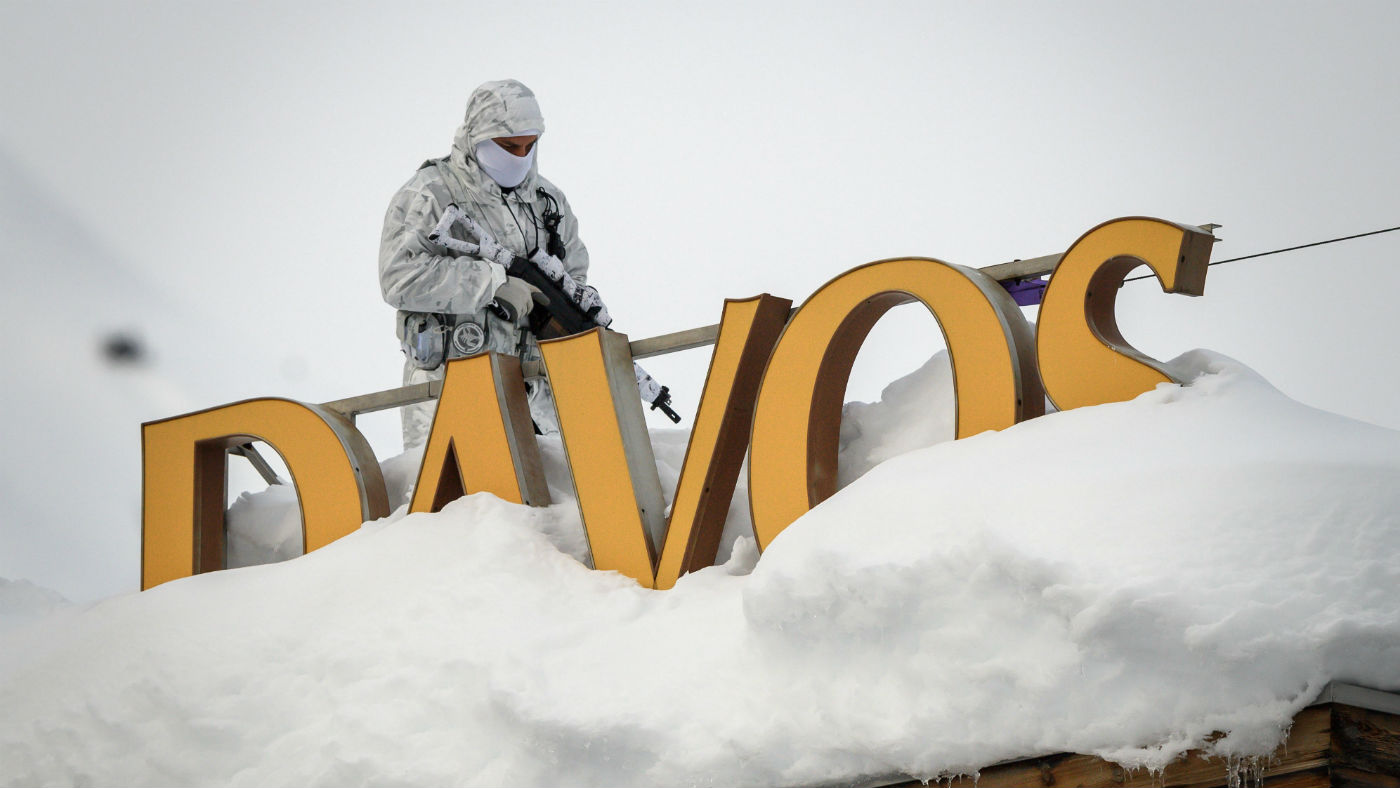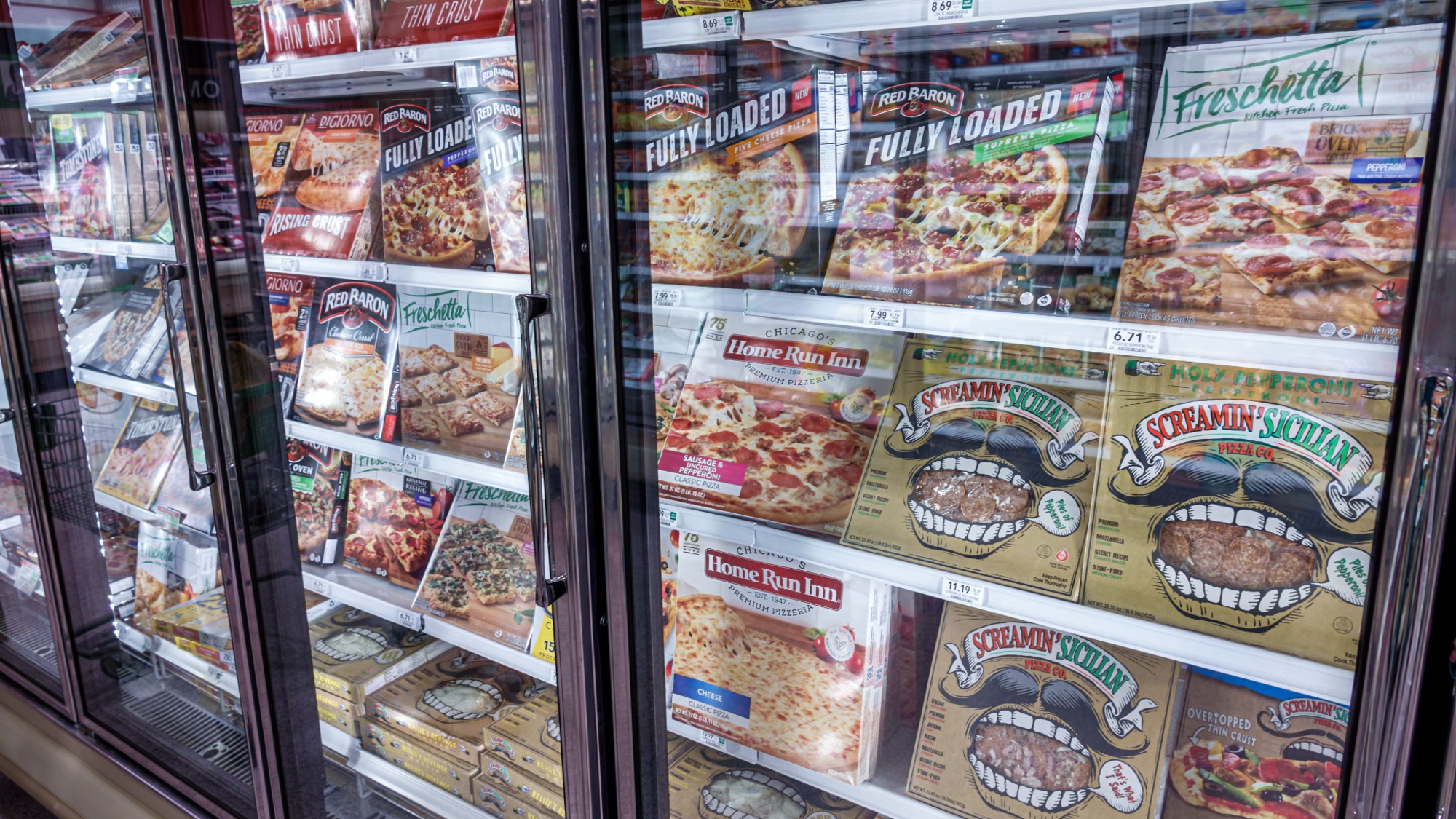Davos 2019: what to watch for at the World Economic Forum
Conference begins amid political and economic storms as some world leaders choose to stay away

A free daily email with the biggest news stories of the day – and the best features from TheWeek.com
You are now subscribed
Your newsletter sign-up was successful
The usual mix of political bigwigs and business heavyweights have descended on the tiny Swiss ski resort of Davos for the start of the World Economic Forum.
Yet amid a perfect storm of trade wars, government shutdowns, Brexit chaos, volatile markets and fears of a new global recession, this year’s theme of Globalism 4.0 seems oddly out of touch with the wave of populism and economic nationalism sweeping the world.
“The uncertainties are vast,” says Ilaria Maselli for CNN Business.
The Week
Escape your echo chamber. Get the facts behind the news, plus analysis from multiple perspectives.

Sign up for The Week's Free Newsletters
From our morning news briefing to a weekly Good News Newsletter, get the best of The Week delivered directly to your inbox.
From our morning news briefing to a weekly Good News Newsletter, get the best of The Week delivered directly to your inbox.
In a new survey of more than 800 global CEOs by The Conference Board, corporate leaders ranked the risk of a recession as their number one external concern for 2019.
“Global political instability and trade disruptions came in as runner-ups. They also have little faith in the traditional levers of power — policy and political institutions — containing the external turbulence,” says Madelli.
A separate survey from audit giant PwC has further added to the gloom in Davos. It shows the share of chief executives who think the global economy will slow over the next year has jumped to nearly 30% from 5% in 2018
The World Economic Forum is well-known for its high-powered guest list and this year’s attendees include German Chancellor Angela Merkel, Japanese Prime Minister Shinzo Abe, Brazil’s new President Jair Bolsonaro, Israeli Premier Benjamin Netanyahu, Bill Gates and world wide web inventor Sir Tim Berners-Lee.
A free daily email with the biggest news stories of the day – and the best features from TheWeek.com
But there are some high-profile absences.
Amid the backdrop of a slowing Chinese economy, President Xi Jinping has decided against attending. It means neither leader of the world’s two largest economies will be present after Donald Trump cancelled plans for a US delegation to attend this year due to the ongoing government shutdown.
They join French President Emmanuel Macron and Theresa May, both of whom are facing domestic turmoil, in shunning the event.
Saudi Arabia’s Energy Minister Khalid Al-Falih has also dropped out at the last minute, joining the long list of notable no-shows.
For those who do attend, a major theme this week will be environmental challenges.
In contrast to most business surveys, the World Economic Forum’s global risk report has identified the failure to mitigate climate change as top of the list of dangers facing the world economy.
Addressing the opening day of the summit, Sir David Attenborough told attendees that the worlds of business and politics should “get on with the practical solutions” needed to prevent environmental damage.
But as The Guardian points out, that hasn’t stopped world leaders from choosing private jets as their means of transportation.
Experts say up to 1,500 private planes will fly to and from the Swiss ski resort over the course of the summit – a record for the week and hardly in keeping with its green agenda.
-
 The Week Unwrapped: Do the Freemasons have too much sway in the police force?
The Week Unwrapped: Do the Freemasons have too much sway in the police force?Podcast Plus, what does the growing popularity of prediction markets mean for the future? And why are UK film and TV workers struggling?
-
 Properties of the week: pretty thatched cottages
Properties of the week: pretty thatched cottagesThe Week Recommends Featuring homes in West Sussex, Dorset and Suffolk
-
 The week’s best photos
The week’s best photosIn Pictures An explosive meal, a carnival of joy, and more
-
 Is the US in a hiring recession?
Is the US in a hiring recession?Today's Big Question The economy is growing. Job openings are not.
-
 Is the UK headed for recession?
Is the UK headed for recession?Today’s Big Question Sluggish growth and rising unemployment are ringing alarm bells for economists
-
 Why has America’s economy gone K-shaped?
Why has America’s economy gone K-shaped?Today's Big Question The rich are doing well. Everybody else is scrimping.
-
 Is the US in recession?
Is the US in recession?Today's Big Question ‘Unofficial signals’ are flashing red
-
 Doing the hustle: Are side gigs a sign of impending recession?
Doing the hustle: Are side gigs a sign of impending recession?In the Spotlight More workers are 'padding their finances while they can'
-
 Frozen pizza sales could be a key indicator of a recession
Frozen pizza sales could be a key indicator of a recessionThe Explainer Sales of the item have been increasing since the pandemic
-
 Trump tariffs: five scenarios for the world's economy
Trump tariffs: five scenarios for the world's economyThe Explainer A US recession? A trade war with China? How 'Liberation Day' could realign the globe
-
 Can the UK avoid the Trump tariff bombshell?
Can the UK avoid the Trump tariff bombshell?Today's Big Question President says UK is 'way out of line' but it may still escape worst of US trade levies